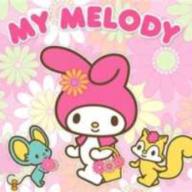點樣分past simple tense 同 past continuous tense.
請舉出例子及詳細說明。
plz be quick.
english grammar problem
2013-11-29 1:36 am
回答 (1)
2013-12-01 5:40 am
✔ 最佳答案
We use the simple past tense to talk about what happened at a definite time in the past.There are some common expressions we use:
yesterday,
last night,
a month ago,
last week,
yesterday afternoon, etc
Most verbs ( + ed)
walk→walked play →played
Verbs ending in e (+d)
live →lived use →used
Verbs ending in a consonant (輔音) + y
(-y + ied) (consonant: p, t, r, etc)
cry →cried carry →carried
Short verbs ending in a vowel (元音) + a consonant (vowel: a, e, i, o, u)
(double the consonant + y)
stop →stoppedshop →shopped
No change
cost →costput →put
Change the vowel (元音) or the consonant (輔音)
come →camering →rang
make →madesit →sat
Change the whole word
buy →boughtdo →did
We add “did not” before the main verb to
form negative sentence. (did not = didn’t)
I did not see Sandy this morning.
John did not go to church last Sunday.
David did not watch TV last night.
Statements:
“I / He / She / It” was very good.
“You / We / They” were very smart.
Questions:
Was “I / he / she / it” very good?
Were “you / we / they” very smart?
Negative sentences:
“I / He / She / It” was not very good.
“You / We / They” were not very smart
past continuous tense
a.過去進行式用來表示過去持續了一段時間的動作
句式結構:
was
were
+動詞+ “ing”
例子:
- Yesterday morning we were having dim sum in a Chinese restaurant.
- I was traveling in Europe with my friend last month.
b. 用來表示某事發生前開始的動作。
例子:
- When Mr. Wong came in, I was writing a letter.
- I saw him while he was lying on the bed.
收錄日期: 2021-04-20 14:33:30
原文連結 [永久失效]:
https://hk.answers.yahoo.com/question/index?qid=20131128000051KK00130

